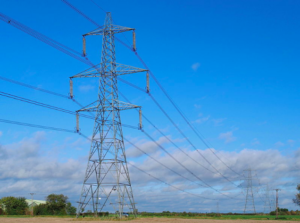 Ofgem has confirmed that it will make businesses pay for the ability to use the network via a banded fixed charge and end payments they can receive by helping suppliers avoid balancing charges.
Ofgem has confirmed that it will make businesses pay for the ability to use the network via a banded fixed charge and end payments they can receive by helping suppliers avoid balancing charges.
Firms with onsite generation have been able to reduce the amount they pay to use the power system, and have earned money by helping suppliers avoid system balancing costs, called BSUoS charges.
Ofgem says this distorts the market and means other network users – everyone else – pay more as a result.
The regulator has been consulting on changes since 2016 and has already moved to cull some benefits, such as Triad export payments. It has now confirmed that changes to distribution network charges will apply from April 2022 and transmission charging changes from April 2021.
Businesses will then have to pay a banded fixed charge, determined by their voltage level. “Where further segmentation is required, further boundaries will be defined based on agreed capacity for larger consumers for whom this data is readily available, and net consumption volume for smaller consumers for whom this data does not routinely exist,” states Ofgem’s decision document.
Businesses with onsite generation, and firms involved in demand-side response, have repeatedly raised concern that the changes damage the business case for flexibility, which government and Ofgem acknowledge will be required in a smart, flexible energy system.
They hope new financial incentives will emerge when Ofgem completes its broader review of forward looking network charging and National Grid ESO launches new services.
Ofgem has acknowledged the review will be “difficult” for some, but says it has to treat all users equally. However, it is looking at whether small generators should be exempt from BSUoS charges and will set up a new task force to inform that decision.
Renewables groups again expressed dismay at the changes and reiterated calls for Ofgem’s remit to be expanded from purely economic terms to also consider carbon, given the UK’s commitment to decarbonise the economy by 2050.
See details of Ofgem’s decision here.
Related stories:
Flex provides urge National Grid to go faster, Ofgem to go slower
Trade groups urge Greg Clark to intervene in “damaging” charging reviews
Revenue and regulatory risk remain key challenges for battery storage
Ofgem’s targeted charging review: What’s the business cost impact?
Ofgem outlines ‘line rental for all’, further embedded benefit cuts
Constraint trading grid access and triad: Ofgem scopes major charging review
Ofgem consults on major networks charging review
Ofgem paves way for major change to energy system charges
Ofgem moots making firms pay network charges for onsite generation
Ofgem chief relishes ‘difficult’ charging review
Click here to see if you qualify for a free subscription to the print magazine, or to renew.
Follow us at @EnergystMedia. For regular bulletins, sign up for the free newsletter.




I am very disappointed by this news and I am concerned by the financial impact this will have on many businesses, particularly flexible end users. I also strongly believe this will make the system even more difficult to manage as their is currently an expectation and a reasonably known quantity for reduction in consumption in peak hours, where and when will this load be used now? How big will the new peak become as the incentive for load shedding in these hours is lost? With the impending electrification of transport and heating on the horizon with the aim of achieving Net Zero I am a little perplexed by this step to be honest.